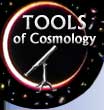
|
|
 |
How
to Measure Velocities in the Heavens
|
 |
|
|
|
Not all scientists immediately accepted the prediction that the light from moving objects would show a Doppler shift. In 1868 the English amateur astronomer William Huggins found what appeared to be a slight shift for a hydrogen line in the spectrum of the bright star Sirius. By 1872, Huggins had more conclusive evidence of motions of Sirius and of several other stars. Instrumental limitations prevented Huggins from extending his spectroscopic investigations to the faint spiral nebulae. Their velocities began to be measured only when astronomical entrepreneurship in America's Gilded Age (1880s and 1890s) led to the building of larger instruments, and the center of astronomical spectroscopy shifted to the United States. |
|
Copyright ©. Brought to you by the Center for History of Physics, a Division of the American Institute of Physics |
|
|||||